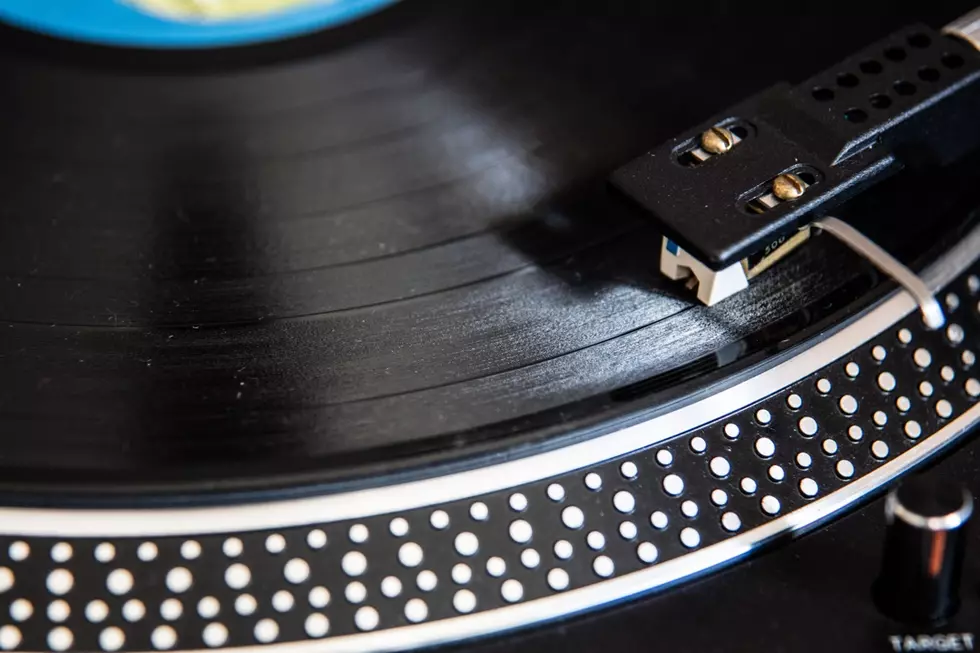25 Years Ago: ‘Slanted and Enchanted’ Establishes Pavement as Indie Titans
When Pavement began, its lineup was considerably less than concrete. When singer-guitarists, and childhood buddies, Stephen Malkmus and Scott “Spiral Stairs” Kannberg formed Pavement in 1989 in Stockton, Calif., they were less a band than a studio project.
The duo’s ramshackle first EP Slay Tracks: (1933-1969) was only released in a few hundred copies, but those platters ended up in the right hands. Before long, Pavement was signed to influential indie label Drag City and being praised by taste-making DJ John Peel. It wasn’t until later that Malkmus realized the power of the British radio icon.
“Everyone loved Peel and listened to him, and if he liked you, you’d get 300 people at your gig,” Malkmus recalled to Pitchfork. “In those early times, that space from being a nobody to being something is so vast and then, after that, you’re just kind of there – it’s up to you to carry on the fight and have something to say. But still, to get your foot in the door, Peel was massive. We were hyped!”
Despite garnering the attention of independent labels, rock critics and fellow musicians, Pavement still really wasn’t a band when the guys were recording the tracks that would make up their debut album, Slanted and Enchanted. The group was as ragged as the noise rock they made, with the 20-something Malkmus and Kannberg handling the majority of the instruments. Gary Young, a pseudo-hippie in his late 30s, became the drummer out of necessity – he owned the studio in which the duo first recorded.
As the trio cobbled together tracks and put out EPs and singles, Pavement eventually signed with Matador Records in 1991. Rather than releasing all of the Fall-, R.E.M.- and Sonic Youth-inspired tunes that Malkmus and Kannberg had crafted over the past year or so, the guys in Pavement narrowed the group’s debut LP to a tidy 14 tracks, including a remixed “winter version” of the band’s Drag City single, “Summer Babe.”
“We really thought any of those songs could be on [Slanted],” Kannberg said in 2015. “Unfortunately, you have to pare it down to the 10 or 12 that sound the best together. Calling something a B-side or a rarity – that’s not really correct. And not making the cut doesn’t mean they’re not good enough; they just didn’t fit with the other songs.”
The so-called leftovers only added to Pavement’s burgeoning lore among early fans. The buzz went into overdrive (as least in indie circles) when Slanted and Enchanted was given to critics months ahead of the album’s release on April 20, 1992. After a steady build, Pavement was the hippest band around – only now Malkmus and Kannberg had to turn their project into a real, functioning band. They brought on bassist Mark Ibold (to help steady Young’s unpredictable drumming) and utility player Bob Nastanovich. Before long, Pavement was a real band playing real gigs to a real, growing fanbase.
Although strictly a cult-level attraction in the States, Pavement hit the charts with the debut album in the U.K. Slanted made it to No. 72 on the British chart. In the meantime, Slanted was slobbered over by the music press on both sides of the Atlantic.
The praise has only increased in the years since, with many pointing to Malkmus’ command of melody and deadpan vocals as well as Pavement’s growling guitars and bursts of noise as the reasons why Slanted and Enchanted is one of the most influential records in rock history. It has continued to loom large, even after Pavement broke up in 1999, receiving a deluxe, two-disc treatment (with all of those so-called rarities) by Matador in 2002.
“With a record like Slanted and Enchanted, that was so much a timing thing, along with the fact that its flaws are a big part of what makes it good,” Malkmus told GQ in 2010. “It’s not like some Radiohead record, where the whole thing is good. Our records aren’t good in that way. Our records are more attitude and style, sort of in a punk way. We’re good in the same way the Strokes are good. I think Slanted and Enchanted probably is the best record we made, only because it’s less self-conscious and has an unrepeatable energy about it.”
Pavement Albums Ranked in Order of Awesomeness
More From Diffuser.fm









